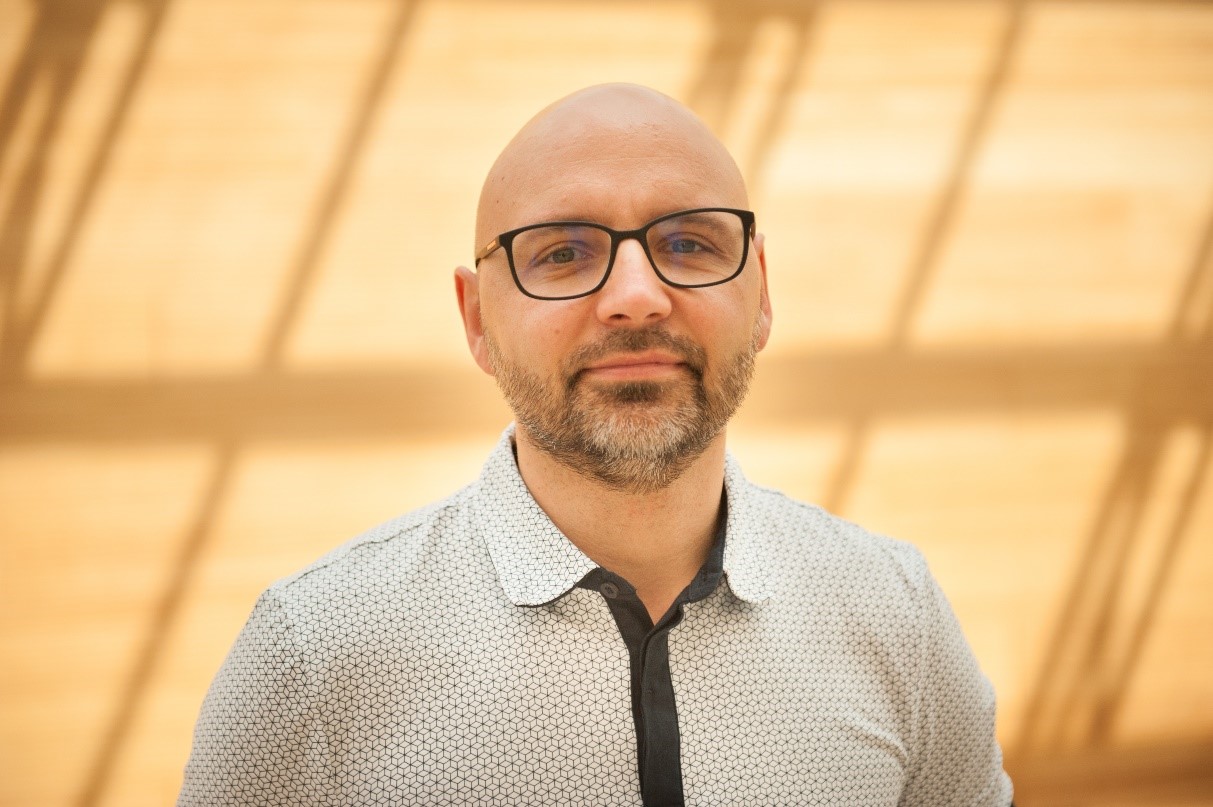
Dr. Habil. Zbigniew Heleniak specialist in internal medicine, nephrologist, transplantologist from the Department of Nephrology, Transplantology and Internal Diseases of the Medical University of Gdańsk, winner of the “Research Travel Grants” internship program organized as a part of the “Excellence Initiative ‒ Research University” program, thanks to which he went for a month-long research internship at the Department of Nephrology of the Charité Medical University in Berlin, Germany.
1. What were your beginnings in establishing foreign collaborations like?
When I started my search for scientific cooperation, I already had a doctorate in medical sciences, so it was obvious that international cooperation with another prestigious facility was necessary for further scientific development. I started my search for a research facility by identifying which foreign centers are conducting research on cardiovascular complications in chronic kidney disease patient population, and simply wrote to them. I received a response to an email inquiring about cooperation from half of the facilities which I approached. Unfortunately, most of the responses were met with a lack of interest, yet there was a response from Prof. Klemens Budde of the Charité Medical University in Berlin, who was interested in scientific cooperation.
2. How did your collaboration with researchers at Charité Medical University in Berlin develop further?
Between the first email exchanged with Prof. Budde, and the first meeting: there was just a month. In 2018, I went to this facility for the first time, for a month-long internship. During that visit, we created a project on cardiovascular issues in kidney transplant patients, the development of which allowed me to apply for a prestigious DAAD (Deutscher Akademischer Austauschdienst) scholarship. With funding from DAAD, I completed a 3-month internship at Charité Medical University. During our stay, together with German researchers, we evaluated parameters of vascular stiffness and body composition – focusing mainly on parameters that determine the amount and type of adipose tissue – in kidney transplant patients. Through this collaboration, there were 5 full-text original papers published by 2022, with a total IF = 13.8. To summarize, it should be noted that international collaborations are a milestone in a researcher’s career and benefit not only researchers, but also universities.
3. If you were to give one piece of advice to junior fellow researchers – what would that advice be?
My first advice: Don’t be afraid! Write, contact, boast about what has been achieved so far. There is always a chance that there will be a facility to conduct scientific cooperation together, in your field of interest. It certainly takes time and patience. Nevertheless, the most important thing is to take the first step and not be afraid to contact the scientific facility of your choice.
4. As you mentioned, it is necessary to establish international cooperation for further development. In your opinion, is there an appropriate moment in an academic career when it is best to enter into collaborations with foreign facilities?
In my case, I considered the time after obtaining a doctorate in medicine to be an appropriate time, but this is a very individual issue. We are currently seeing students who are still completing their doctoral dissertations during their studies, which shows that the moment for starting an academic career is increasingly earlier. I believe that if someone has the courage, the desire, the ability and the idea, no matter whether they are a student, a doctoral student or an associate professor, they should look for a scientific facility for foreign cooperation. There are many institutions that subsidize trips, although these offers are often aimed at young researchers, before the age of 35. Of course, this does not mean that mature researchers do not have such capabilities. Still, the most important thing is to have the will to do things, and age is certainly not an obstacle to fulfill your plans in that case.
The interview was conducted by Patrycja Maszka-Stankiewicz from the Office of the “Excellence Initiative – Research University” Program.
photo: Mikołaj Frankiewicz